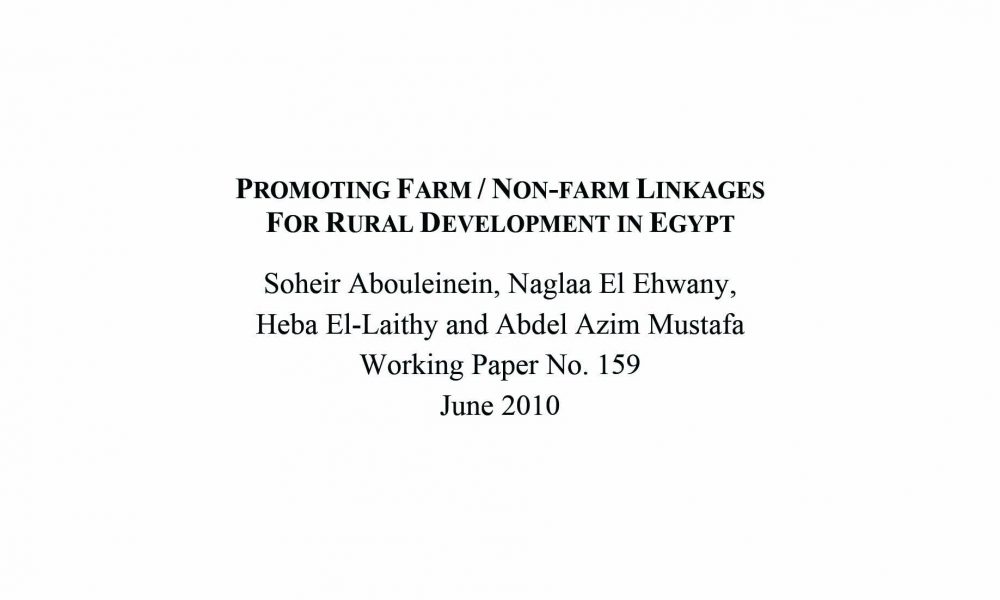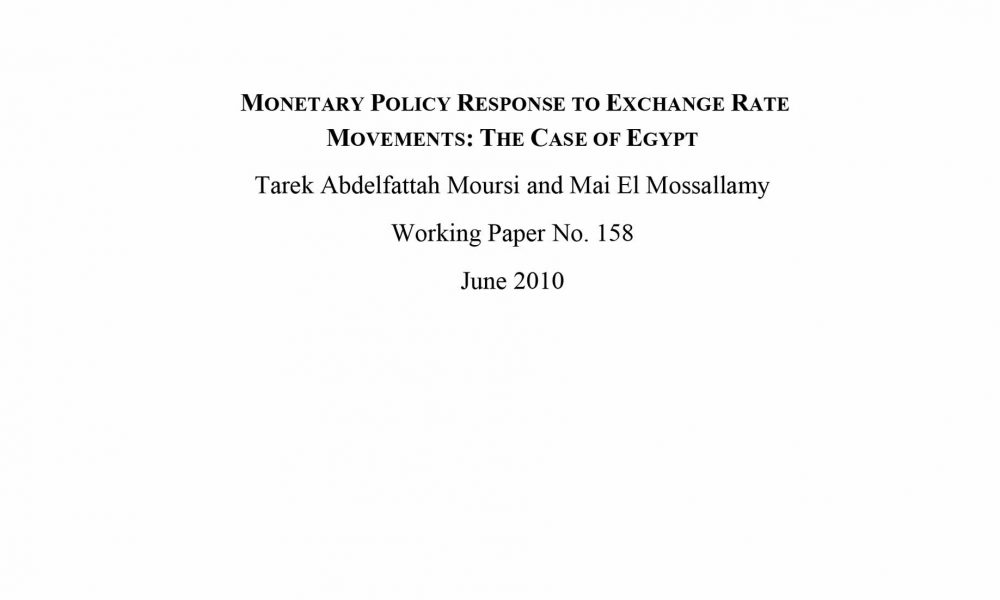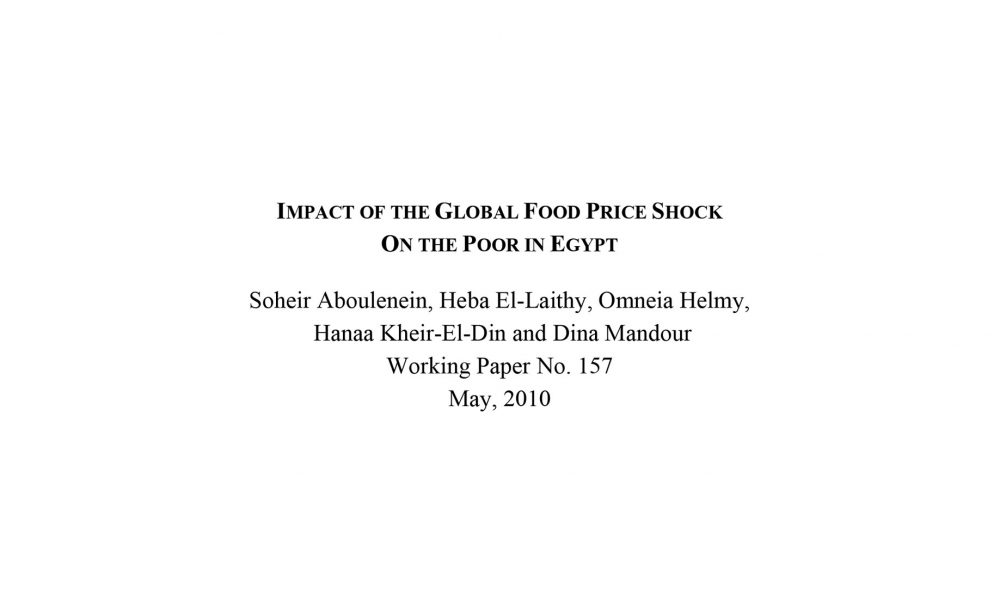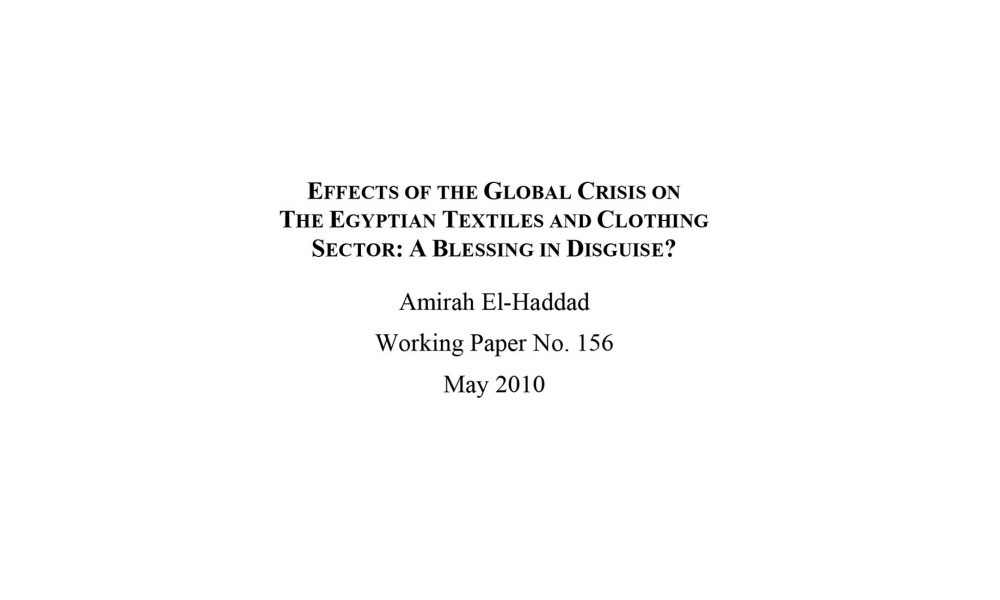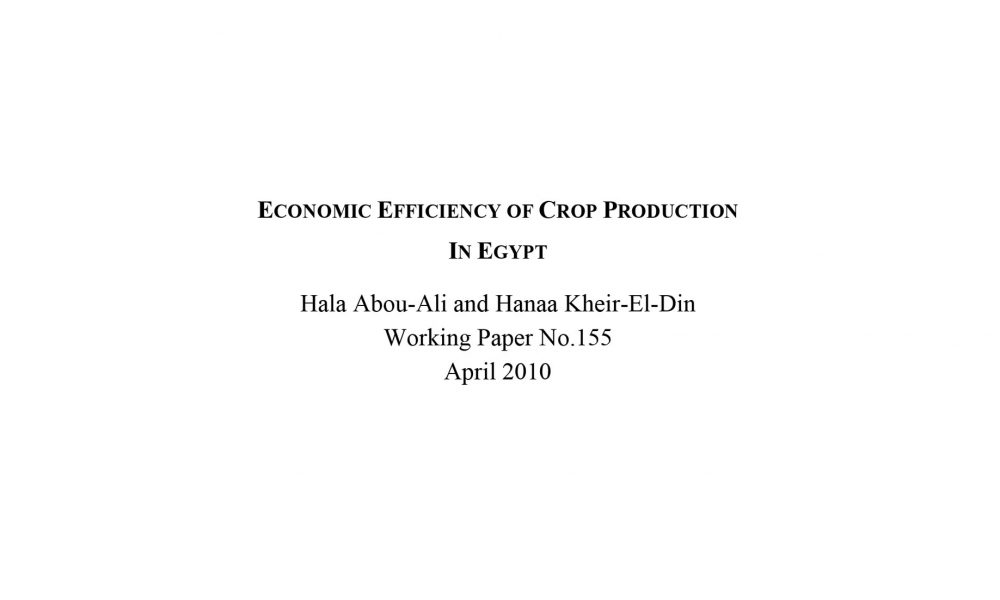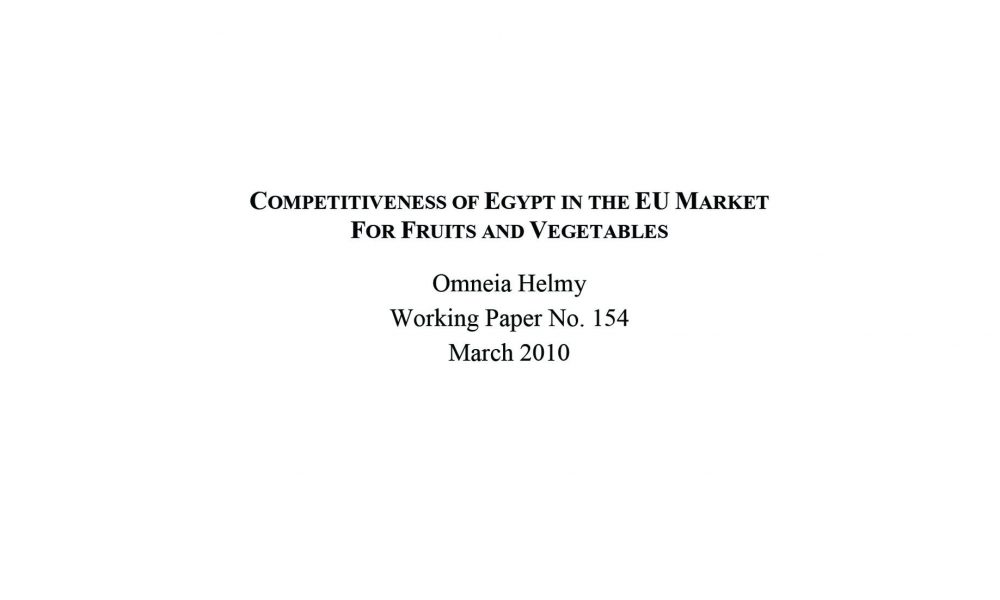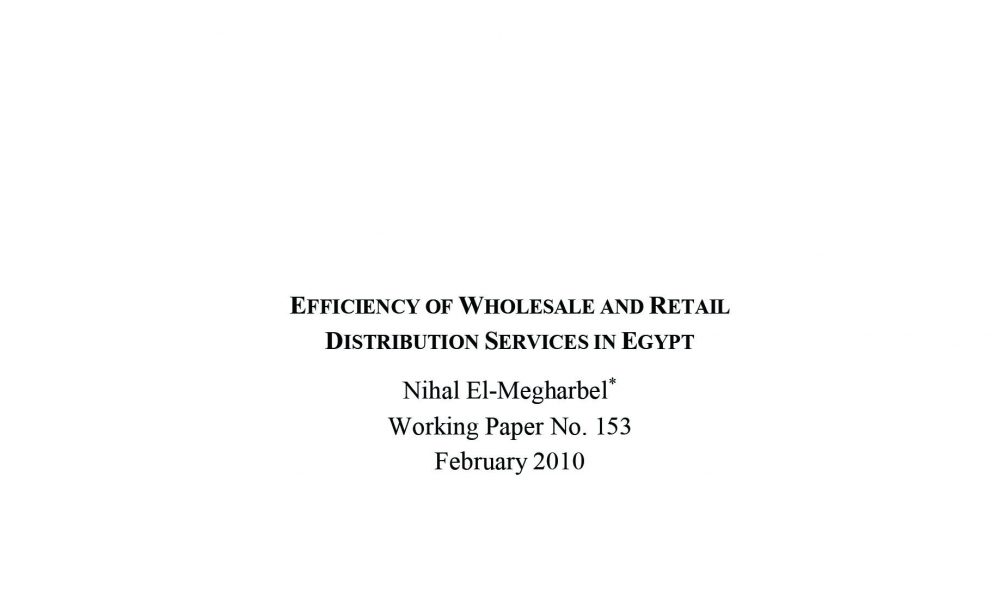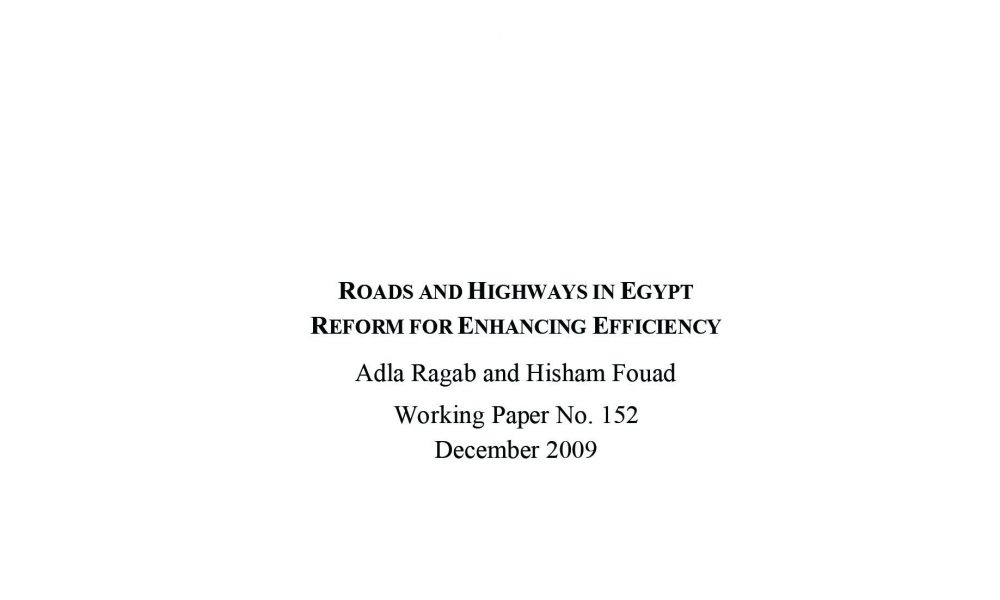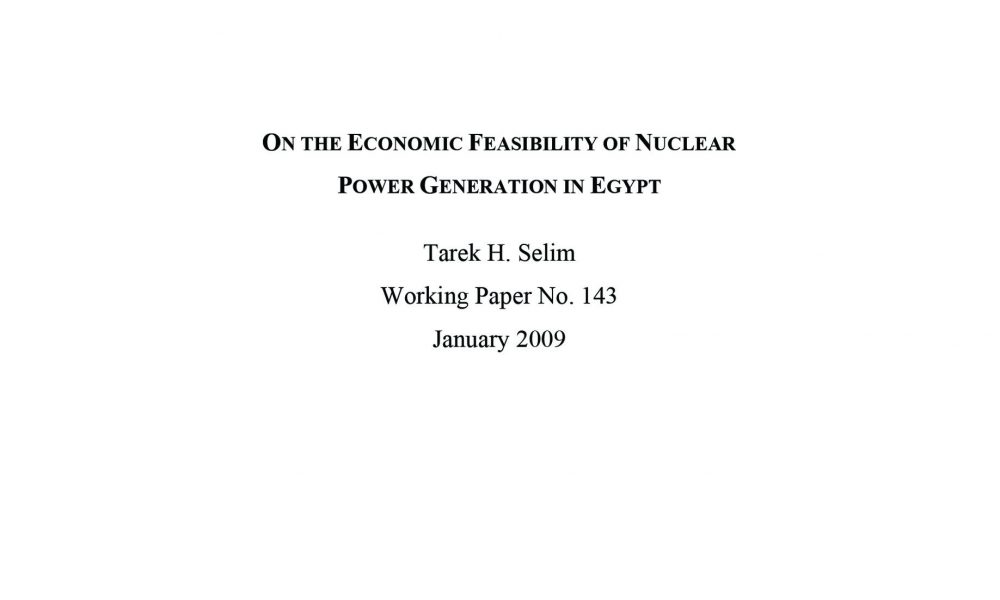Abstract: The primary objective of this paper is twofold. First, it examines the design and conduct of monetary policy in Egypt. Second, it verifies whether “fear of floating” induces the Central Bank of Egypt to regularly resort to policy amendments as a means of smoothing exchange rate fluctuations. Consequently, the study provides an assessment of […]
Abstract: The government of Egypt (GOE) has adopted a set of policy responses to mitigate the negative impact of the food price surge, particularly on the poor. Policy interventions encompassed price oriented policies to reduce the impact of the global food price shock on domestic prices through increasing consumer food subsidies and better targeting them […]
Abstract: The textile and clothing (TC) sector has not escaped the slowdown in the Egyptian economy in response to the crisis. But this sector has been in decline since 2001 in response to a changing global environment. Exports, which have been surviving on account of the politically-motivated Qualifying Industrial Zones (QIZ) and Euro-Mediterranean Partnership agreements, […]
Abstract: Despite positive agricultural developments over the period 1980–2007, significant increases in cultivated area are not expected, given scarce water resources and limited technology. With this in mind, the study sets out to explore prospects for better usage and allocation of existing limited resources by assessing the technical, allocative and economic efficiency of crop production […]
Abstract: Distribution services play a vital role in establishing links between manufacturers and consumers. All goods produced domestically or imported have to go through distribution channels before reaching final consumers. This study attempts to identify the factors affecting the efficiency of distribution services in Egypt in order to offer some concrete proposals that could contribute […]
Abstract: The transport sector in Egypt is characterized by strong public intervention in the design, building and operation of networks and services. Additionally, being a strategic sector, it is marked by significant political interference, aiming to either absorb excess workers or to maintain a low pricing policy. Such policies led to a considerable deficit and […]
Abstract: Egypt is currently planning to introduce nuclear energy for national electricity generation. In this context, this paper provides an economic feasibility assessment of the use of nuclear power to generate electricity in Egypt and identifies the critical factors behind the choice of appropriate nuclear technology. The methodology applied is pure economic analysis of demand […]

